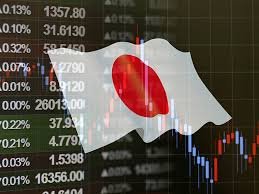A risk-averse mood prevailed in the market at the beginning of the week. China hit a record high number of new infections over the weekend. In response to this, protests against the zero-corona policy are spreading in various parts of China, creating a situation of social unrest. In addition to concerns about a slowdown in China’s economy due to the zero-corona policy itself, there are concerns that protests will further slow down economic activity and lead to political instability.
The drop in Shanghai and Hong Kong stocks is putting pressure on stock trends in the Asian region, such as the Nikkei Stock Average. US stock futures are also in negative territory in after-hours trading. The 10-year US Treasury yield dropped from around 3.69% to 3.62% at one point. In the foreign exchange market, the dollar-yen and the cross-yen are declining in yen-buying pressure, and major currencies other than the dollar-yen are also weak against the dollar. The dollar/yen fell to the low 138 yen level. Attention will be paid to whether this trend will continue in overseas markets after this.
This week, the Eurozone Consumer Price Index will be released on the 30th, and the US employment statistics will be released on the 2nd of the weekend. US monetary policy is expected to reduce the pace of interest rate hikes as inflation slows. By contrast, there are still no signs of a slowdown in inflation growth in Europe. If the above two major events support this outlook, it is likely that the euro/dollar will rise further.
It is assumed that the exchange rate will also move depending on what kind of response the Chinese government takes. AUD is selling strongly, but it is unclear whether it will continue after this.
Basically, as planned, we will continue trading with a US dollar selling perspective.


